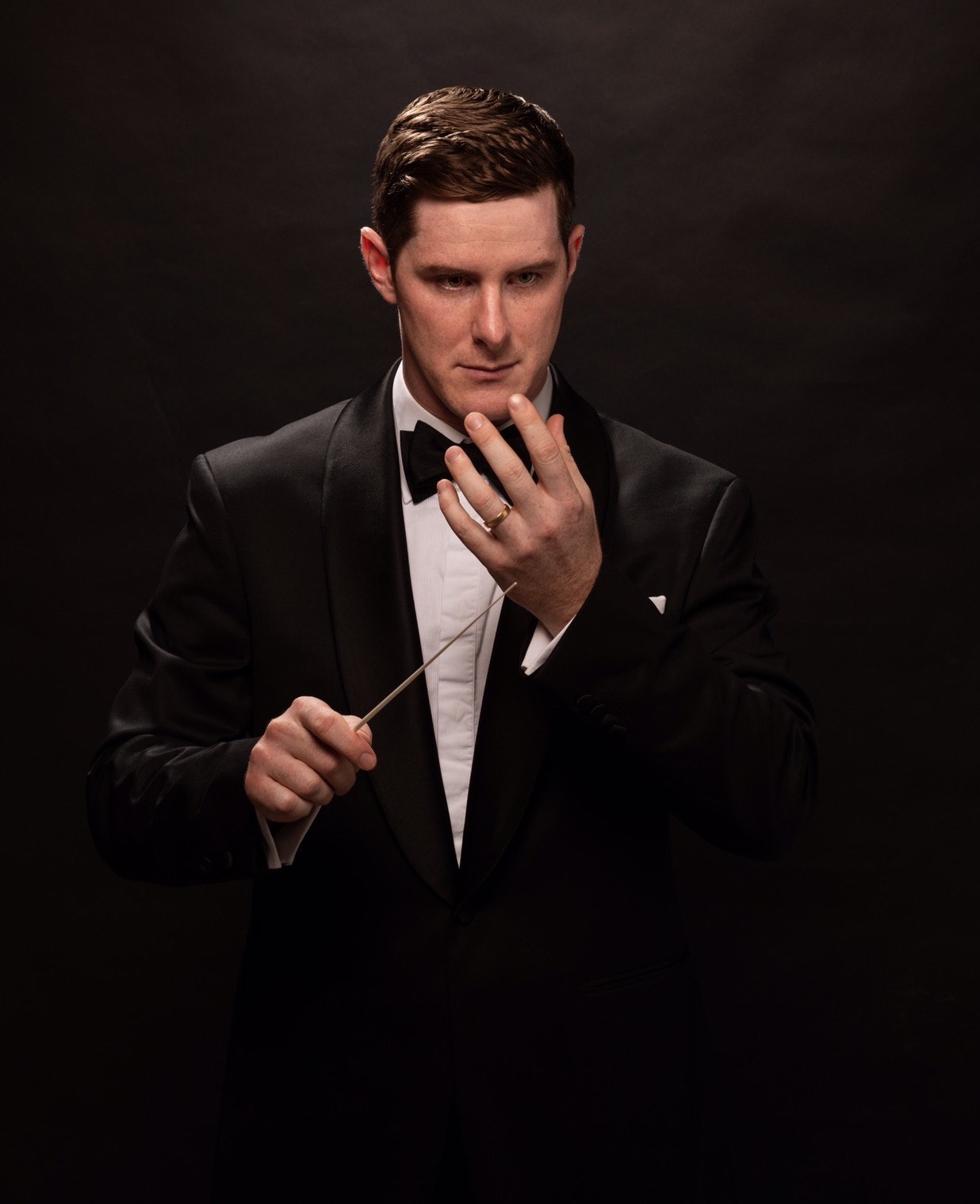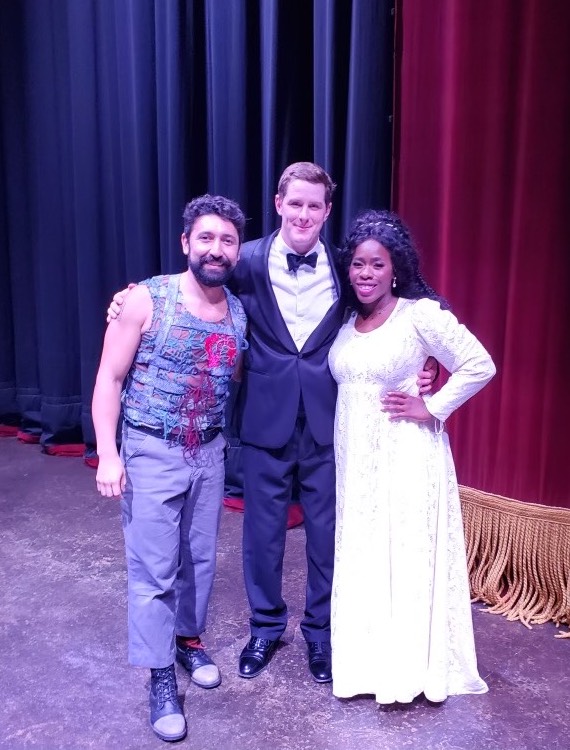Johannes Löhner is a familiar face with the Opera San José audience. Having been a guest conductor during our productions of Falstaff and Tosca, Johannes returned this fall as our Conductor-in-Residence. Balancing his many responsibilities as chorus master, assistant conductor, husband, and dad, we caught up with Johannes to see how he is doing after the first half of the season.
OSJ: We are halfway through your first season as the Conductor in Residence, what has it been like going from being a guest conductor to working here full time?
Johannes: That wonderful change where colleagues become friends and friends become like family. I feel very safe, comfortable to be myself while performing at a high level. When I was still “interviewing” during the Falstaff production, and maestro Marcheso asked me to stay on and return for Tosca, the mindset shifted to a long-term

dynamic already. He’s been an excellent mentor and supportive colleague, it’s an ideal working environment. There’s a great deal of trust from both sides, born out of technical competence and shared musical values – thatmakes me work hard and encourages original creative impulses in the best way. I’ve enjoyed the additional opportunities OSJ has given me, from giving pre-show lectures to donor outreach, and am proud of the digital fundraising project we just recorded in the beautiful Heiman Digital Studio.
OSJ: You have worked internationally, what do you find to be some of the pros and cons of working in an American opera house versus working in institutions overseas?
Johannes: In the USA, Opera companies fight for their funding – this inevitably forces them to relate to their sponsors, talk to their benefactors, and value the input of their public in a way that is palpable. I see it as an advantage, since it motivates us to make sure whatever we’re doing is translating to the audience, sending the message we want it to. In state-funded European repertoire houses, finances are more secure, less volatile. While this enables greater freedom and encourages risk-taking, it also makes everything more abstract. There are benefits to both systems: conductors in Germany wish they had directors that respected the score and wanted the public to understand the music instead of chasing sensationalist reviews, while conductors in America wish they had the job security and diverse cycle of works programmed overseas. In the end, there are great people on both sides, trying to make music within these ecosystems. I hope the answer, and indeed, the future, will be somewhere in the middle. We are neither museum nor show-business; Opera is world culture made relevant, and that means the conversation on how best to keep it vital and grow its audience will never end.

OSJ: You have Assisted, and been the Chorus Master, for four productions at Opera San José now. What production has been your favorite so far to work on?
Johannes: Falstaff felt like an ensemble piece from beginning to end, Tosca was incredibly up close and personal, and Romeo & Juliet had an impeccable workflow and urgency to the whole process. However, (disclaimer: partially because I’m still humming every bar on a daily basis) I would have to choose Il Barbiere di Siviglia. Rossini’s music has never felt so easy; the cast was perfect. Against the backdrop of one of bel canto’s most revered scores, we were enjoying life, discovering nuances, and doing every note justice. The atmosphere was spontaneous, collegial and relaxed. Stephen Lawless and Maestro Marcheso pushed everyone to make the most of it, and I think everything just came together in a way that I will remember fondly for a long time to come.
OSJ: What do you think are the strengths of Opera San José that make them so successful with our audiences?
Johannes: The talented artists it employs are world-class. When you add in an institutional culture of encouraging growth and valuing personal success, all while maintaining positive relationships and caring about building an intelligent base of listeners, the results can be magical. I think OSJ is uniquely positioned, and that its donor base brings diverse interests together with intelligent thinking. Take care of your artists, and their art will take care of you – or something like that. I think audiences can feel when artists are fully invested, when they’re happy, when they’re healthy, and when they’re truly burning for that moment together on stage. When things are genuine, real emotions change us. On an institutional level, that dynamic applies exactly the same way. Motivation matters. If we continue to prioritize quality, we will change people’s lives for the better, and they will never forget that.
OSJ: Being kept busy with conducting here, what do you do in your free time when you have it?
Johannes: I love to play piano, perform in recitals, and compose as well. I exercise 6 days a week, occasionally sing, and go to church on Sundays. I love my family very much. One wife, two boys, and a dog – all incredible, worth a lifetime of devotion. I enjoy adventures, exploring nature, reading, writing poetry, painting, visitings museums, and catching up with friends. I also have a full-time position as Music Director with an orchestra in Germany (Kammerorchester Regensburg) which keeps me busy, part-time work as Adjunct Faculty at the Hochschule für Musik Nürnberg a few times a year, and other engagements traveling around as an assistant and guest conductor. Whenever I have a minute, I work on improving my Mandarin speaking skills. My life is intense, and I love every second of it. I sleep very well at night.